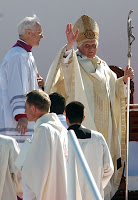“I think
it is maybe time -- what do you think -- for maybe a businessman. How about
that?” That’s what Clint Eastwood
told the assembled in Tampa. Ah, the
solution to our problems, a businessman as president. And of course Mitt Romney couldn’t agree
more. We heard the word business 17
times in his acceptance
speech — his credentials in it, President Obama’s lack of them. He pointed out that the President “…took
office without the basic qualification that most Americans have and one that
was essential to his task. He had almost no experience working in a business.”
That’s an
interesting qualifier for the presidency, one that apparently the American
people have never put high on the list.
Indeed, looking at the backgrounds of our forty-four chief executives
you will find numerous generals, professional politicians and lawyers. We’ve had at least one academic and, yes, an
actor. But in the long list there were
only two businessmen: Herbert Hoover and George W. Bush, the first and only MBA. In addition to the many misty eyed memory lane moments, Romney’s speech focused on the economy, the
importance of free enterprise and business.
Eastwood said it may be time for a businessman, Romney’s unmistakable rejoinder — I’m your guy.
The only
problem is that the two businessmen presidents turned out to be disastrous for
the economy. Hoover presided over a depression
that continues haunt us and Bush over the worst economic collapse
since. It was the non-businessman
presidents who led us out of downturns — clearly this one remains a
challenge — and in robust periods of growth.
Franklin Roosevelt, the politician, Ronald Reagan, the actor, and Bill
Clinton, the lawyer, certainly didn’t seem deficient because they lacked
business experience. And Clinton left us
with a surplus compared with George Bush who, through a combination of tax cuts
and two unfunded wars, ran up the lion’s share of the deficits for which the
Romney-Ryan team blames President Obama.
Yes, we
surely need a business president, one with the background of Hoover and
Bush. That’s what the people in Tampa
offered us. And speaking of former
presidents, Bill Clinton is slated to be the lead off featured speaker in
Charlotte. Did you notice the absence of
former presidents in Tampa, except of course for the usual bow to Patron Saint Reagan, this time
delivered in film and by those noted flame keepers, Newt and Callista. Apparently the Romney people think dead chief executives are a safe bet;
live ones are better left at home and out of sight.
According
to the US Census,
African American and Latinos combined now represent an almost 30% of the
population. Did you see much evidence of
that as the TV cameras panned out at those gathered in Tampa? The GOP constituency, certainly those who
make it to conventions, is White as Ivory soap, a group that has declined from 75.1% to 63.4%
in just the last ten years — Latinos in contrast are up 33%. Keep watch next week and you’ll see a much
more representative audience in Charlotte.
This week’s crowd cheered loudly when Romney said, “As president, I will
protect the sanctity of life. I will honor the institution of marriage.” They still care deeply about socially conservative
issues, but young Americans have a different take. According to Pew
Research, “…young people favor gay marriage by more than two-to-one (65% to
30%).” And they join the majority of
Americans across most age groups who favor women’s reproductive rights to one
degree or another. I don’t know what
this year’s election will bring, not only for the presidency but most
particularly for the House and Senate.
Near term, the demographics and out-of-sync views in Tampa may not be
deciding factors, but long term a party that looks backward with a combination
of nostalgia and anger for what is no more, is ill positioned for the real
future.
They say
there has been scant movement in voter preferences for months. Most of us probably take in these conventions
with minds already made up. I plead
guilty to that and will enthusiastically vote for Barack Obama and Joe
Biden. I’ll be sincerely relieved to see
Romney-Ryan go down to defeat, euphoric if the election is not as close as
predicted (we all can dream). As to
Clint Eastwood, politics aside, I’m still a big fan. He is one of the great movie makers of our time and I
sure hope he keeps on with his day job for years to come.
Transcenders: coming
to a digital device near you next week.









